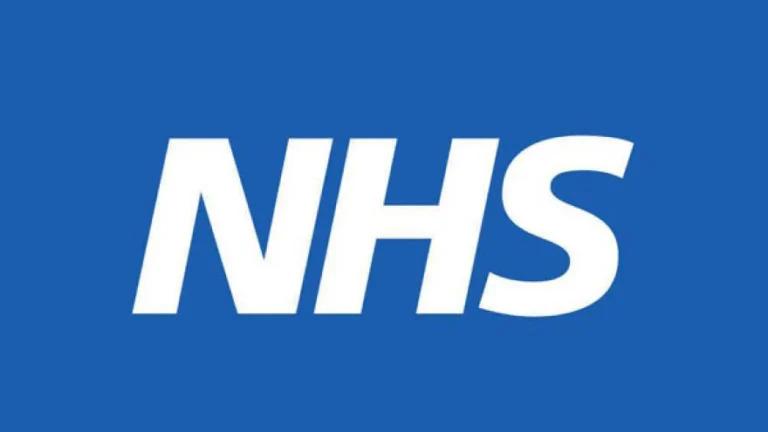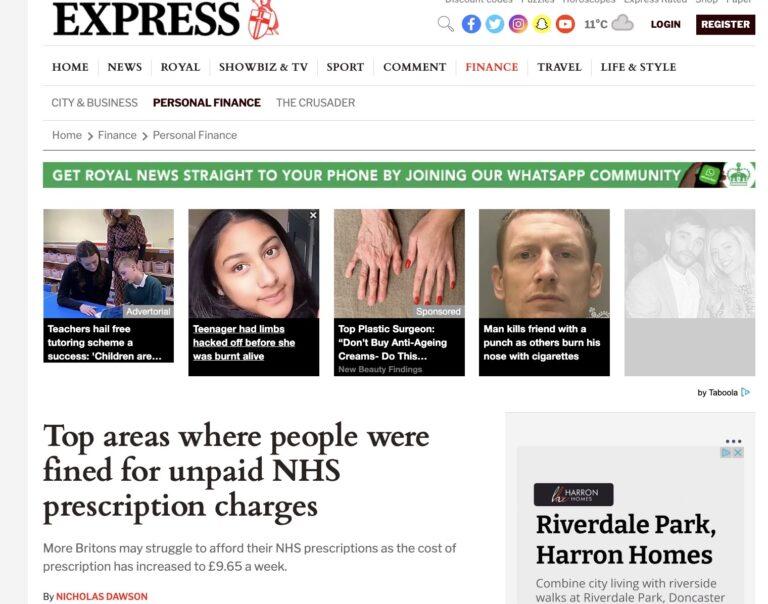Prescriptions play a vital role in managing medical conditions and ensuring access to essential medications. For some individuals, the cost of prescriptions can pose a financial burden. However, the NHS offers free prescriptions to those who meet certain eligibility criteria, including having specific medical conditions. In this comprehensive guide, we will explore the medical conditions that qualify for free prescriptions, the application process, and other important information.
Understanding Free NHS Prescriptions
At present, NHS prescriptions are free for those in Scotland, Wales and Northern Ireland. In England, the current prescription charge is £9.65 per item. NHS England offers free prescriptions to individuals who meet certain eligibility criteria. These criteria include age, residency, and the presence of specific medical conditions. By qualifying for free prescriptions, you can save a considerable amount of money on your medication.
To be eligible for free NHS prescriptions, you must meet one of the criteria below:
- Be aged 60 and over
- Be under 16 years of age
- Be aged 16, 17, or 18 and in full-time education
- Have a maternity exemption certificate
- Have a prescription prepayment certificate
- Have a HRT-only prescription prepayment certificate
- Have a Ministry of Defence prescription exemption certificate
- Have a HC2 (full help) certificate
- Receive Income support or income-related employment and support allowance
- Receive Income-based jobseekers allowance
- Have a Tax credit exemption certificate
- Receive Pension credit guarantee credit
- Receive Universal Credit and meets the criteria
Understanding medical exemption certificates
If you have a medical condition that entitles you to free NHS prescriptions, you can apply for a medical exemption certificate. This certificate serves as proof of your eligibility and allows you to obtain medications without incurring any charges. Let’s delve into the various health conditions that qualify for a medical exemption certificate:
Permanent fistula
Individuals with a permanent fistula, such as caecostomy, colostomy, laryngostomy, or ileostomy, which requires continuous surgical dressing or an appliance, are eligible for a medical exemption certificate.
Hypoadrenalism
Those with a form of hypoadrenalism, such as Addison’s Disease, for which specific substitution therapy is essential, can qualify for a medical exemption certificate.
Diabetes
Individuals with certain forms of diabetes, excluding cases where treatment is solely through diet, can be eligible for a medical exemption certificate.
Hypoparathyroidism
Hypoparathyroidism, a condition characterized by deficient production of parathyroid hormone, is another medical condition that may qualify for a medical exemption certificate.
Myasthenia gravis
Individuals with myasthenia gravis, a neuromuscular disorder that causes muscle weakness and fatigue, are eligible for a medical exemption certificate.
Myxoedema
Myxoedema, a form of hypothyroidism requiring thyroid hormone replacement, is a qualifying medical condition for a medical exemption certificate.
Epilepsy
Those with epilepsy requiring continuous anticonvulsive therapy can apply for a medical exemption certificate.
Continuing physical disability
Individuals with a continuing physical disability that necessitates the assistance of another person to go out are eligible for a medical exemption certificate.
Cancer
Individuals undergoing treatment for cancer or its effects are eligible for a medical exemption certificate.
Please note that the listed medical conditions are not exhaustive. It’s essential to consult your doctor to determine if your specific condition qualifies for a medical exemption certificate.
Applying for a medical exemption certificate
If you have a qualifying medical condition, you can apply for a medical exemption certificate through your GP or doctor. They will provide you with an application form, which you must complete and submit. Once your application is received, you can expect to receive your paper certificate within 10 working days.
Validity and renewal of medical exemption certificates
A medical exemption certificate is typically valid for five years. It is important to keep track of the certificate’s expiration date and arrange for its renewal before it expires. The NHS will send you a reminder approximately one month before your current certificate expires. However, it is ultimately your responsibility to ensure you have a valid medical exemption certificate when claiming free NHS prescriptions.
Claiming free NHS prescriptions with a medical exemption certificate
When collecting your medications, you will need to mark box ‘E’ on the prescription form and sign the declaration. In some cases, you may be required to present your medical exemption certificate as evidence of your eligibility. However, even if you do not have your certificate with you, you can still collect your NHS prescription for free.
Claiming refunds for prescription charges
In certain situations, you may be eligible for a refund of NHS prescription charges. To qualify for a refund, you must meet the following criteria:
- You received an NHS refund form (FP57) at the time of payment
- Your medical exemption certificate covered the date on which you paid for your NHS prescription
To claim a refund, you must submit your application within three months of paying the prescription charge. The FP57 form will provide you with detailed instructions on the refund process.
Updating details and replacing lost or damaged certificates
It is crucial to ensure that the details on your medical exemption certificate are accurate and up to date. If you change your name, you will need to obtain a new certificate by providing the necessary documentation, such as a marriage certificate or passport. Similarly, if you change your address or notice any errors on your certificate, you should contact the appropriate authorities to update the information.
If your medical exemption certificate is lost or damaged, you can request a replacement by contacting the relevant authorities.
Low-Income Scheme
The NHS Low-Income Scheme is designed to assist individuals who have a low income and struggle to afford their healthcare costs. By applying for this scheme, you may be eligible for reduced prescription charges or even free prescriptions, depending on your circumstances.
To apply for the Low-Income Scheme, you will need to complete an HC1 form, which is available from your local Jobcentre Plus office or can be downloaded from the NHS website. The form requires details about your income, savings, and any dependents you may have. Once processed, you will receive a certificate outlining the level of support you are entitled to.
Other NHS Costs
In addition to prescription costs, the NHS incurs other health costs for various services and treatments. These costs can include travel costs, dental treatments, sight tests, fabric supports and wigs for individuals undergoing chemotherapy. Depending on your circumstances, you may be eligible for assistance with these costs.
The NHS Business Services Authority website provides detailed information about the financial support available for different services. It is advisable to review this information or speak to your healthcare provider to determine if you qualify for any additional support.
Conclusion
Having a medical condition should not be a barrier to accessing vital medications. The NHS provides free prescriptions to individuals with qualifying medical conditions through the medical exemption certificate system. By understanding the eligibility criteria, applying for a certificate, and familiarising yourself with the refund process, you can navigate the system with ease and ensure access to necessary medications without incurring financial burdens. If you believe you may be eligible for a medical exemption certificate, consult your GP or doctor to begin the application process and discover the options available to you.
Remember, accurate and up-to-date information is crucial, so always consult official NHS sources for the most current guidelines and requirements.
Additional Information:
- It’s important to note that medical exemption certificates only cover the cost of prescription medications. Other costs, such as dental treatments, may require separate eligibility assessments
- The medical conditions listed in this article are not exhaustive. If you have a condition not mentioned but believe it may qualify for a medical exemption certificate, consult your doctor for further guidance
- The renewal process for medical exemption certificates should begin before the current certificate expires to ensure uninterrupted access to free prescriptions
Sources
- Check if you can get free prescriptions – NHS
- Free NHS prescriptions: Eligibility for benefit claimants – House of Lords Library
Medical Disclaimer
NowPatient has taken all reasonable steps to ensure that all material is factually accurate, complete, and current. However, the knowledge and experience of a qualified healthcare professional should always be sought after instead of using the information on this page. Before taking any drug, you should always speak to your doctor or another qualified healthcare provider.
The information provided here about medications is subject to change and is not meant to include all uses, precautions, warnings, directions, drug interactions, allergic reactions, or negative effects. The absence of warnings or other information for a particular medication does not imply that the medication or medication combination is appropriate for all patients or for all possible purposes.







